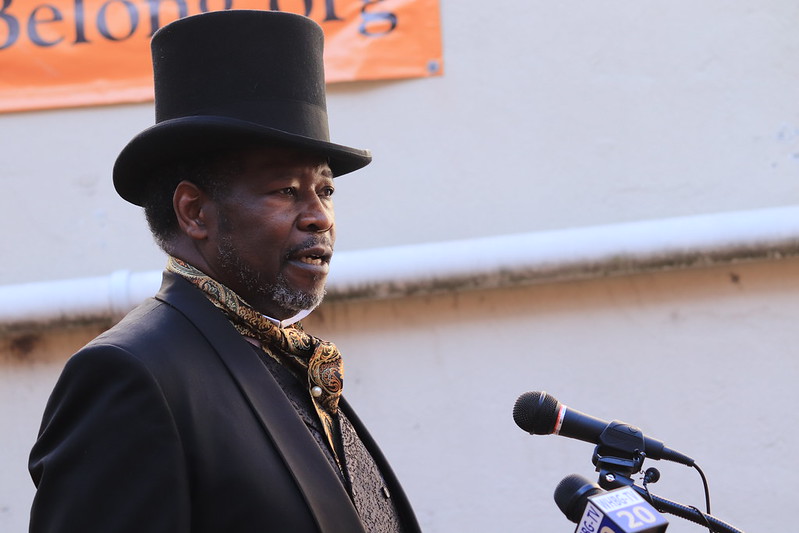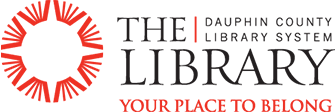Libraries have been a constant in the life of Eric Jackson. It’s not just that his first work-study job was exploring the stacks in the “nosebleed section” of the Guilford College library.
There was also the library in his own home. After all, he and his 12 siblings needed a steady supply of reading materials.
“Having a lot of brothers and sisters, there were always a lot of books around the house,” he says. “Even today, when you step into the house where I grew up – my youngest brother still lives there – there’s a bookshelf that was our library for years and years. Encyclopedias. Books about animals. You name it. That was a great education.”
Jackson is an Air Force veteran, teacher, minister, consultant, actor, and interpreter of T. Morris Chester for the Pennsylvania Past Players.

Chester is the Civil War-era journalist and civil rights activist whose name will be on The Library’s welcome center at the newly renovated McCormick Riverfront Library.
What are you reading? One book I’m reading is “Jesus and the Disinherited,” by Howard Thurman, who was one of Dr. King’s mentors at Boston University. On the secular side, I’m reading biographies of Louis Gossett, Jr. and Sidney Poitier. If I could only have three books to read, it would be my trilogy of favorites: the Holy Bible, which allows my faith in living and loving to remain strong; “A Raisin the Sun,” which keeps me connected to thoughts of family, my mother’s strength, and my father’s hard work to provide for us; and “Charlotte’s Web,” which always reminds me that we are more than flesh and more than our minds. We are also our emotions.
Why draws you to a good read? I’m looking for something I can almost sit in the story as another person right in the room with the characters. Nonfiction’s probably the reading that I like best, but there are some other stories. I read some of the urban fiction genre. Outside of Civil War characters, I want to do shows about Sidney Poitier and Lou Gossett. I always look for the opportunity to engage people in transparency with regards to race.
Why are libraries important? A word I like to use with human relations is organic, and I think that’s what the reading of a book does. For young people who’ve never been to a library, it’s an adventure just to see the number of books and go to the stacks. There’s nothing like reading, even before watching a living history presentation, line for line and word for word because that one word stays with you more when you can see it, when you can process it. The essence of it lives in you – that word, that story.



